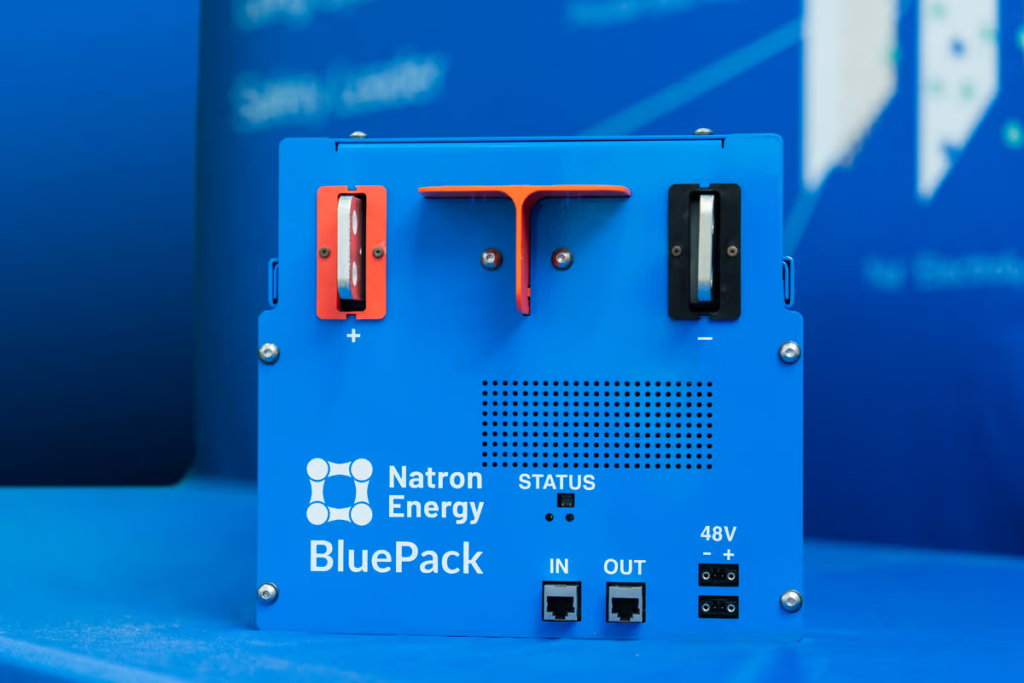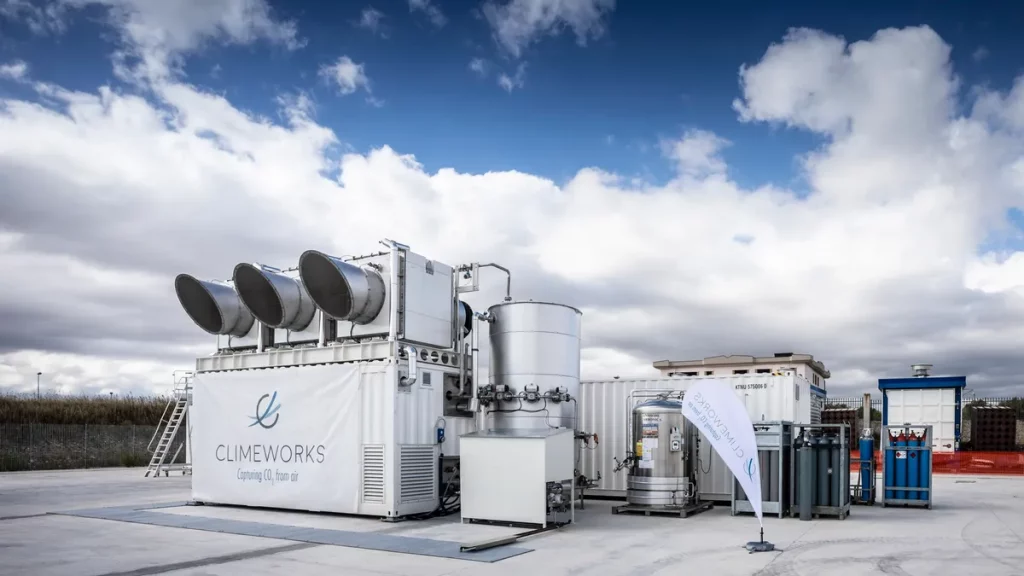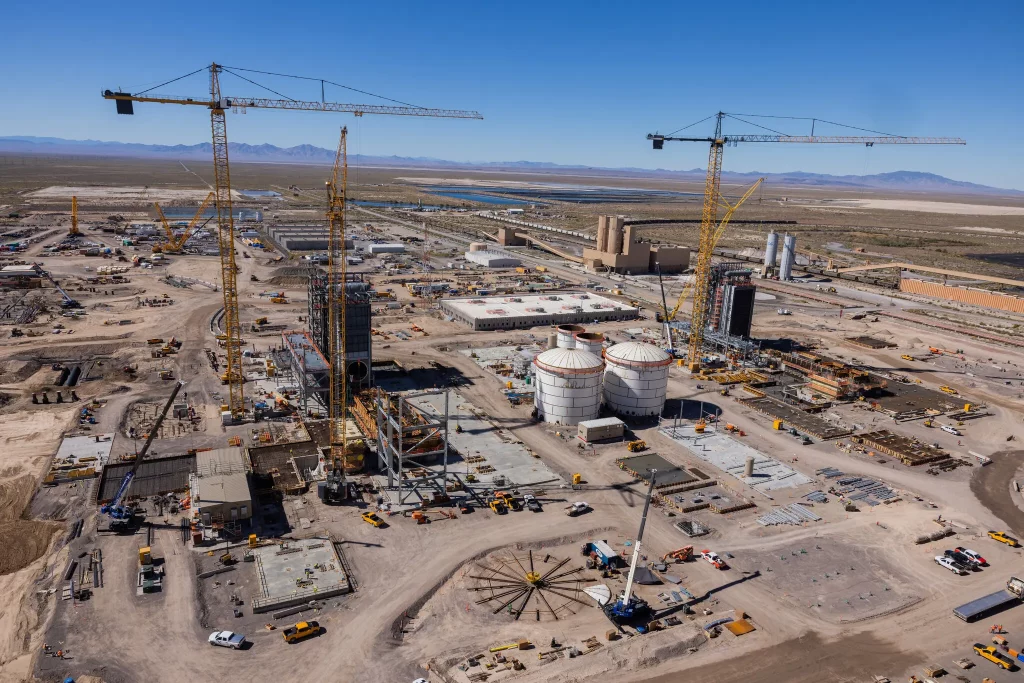
Lithium-ion batteries have dominated the energy storage market for decades, but their high cost, limited lifespan, and safety concerns have led researchers to explore alternative technologies. One such technology is sodium-ion batteries, which have been in development for years and are now making their way into commercial production. Natron Energy, a California-based company, has officially commenced mass production of its lithium-free sodium batteries in its Holland, Michigan facility, offering an alternative energy storage solution with benefits such as faster cycling, longer lifespan, and safer usage compared to traditional lithium-ion batteries.
Sodium-ion batteries use sodium ions instead of lithium ions to store and release energy, which makes them cheaper and more sustainable. They also have a longer lifespan and are safer to use than lithium-ion batteries, which can overheat and catch fire. Natron Energy’s sodium-ion batteries are designed for use in electric vehicles, data centers, and other applications that require high-power energy storage. They can be charged and discharged faster than lithium-ion batteries, making them ideal for applications that require frequent cycling.
The mass production of lithium-free sodium batteries is a significant milestone for the energy storage industry, as it brings us one step closer to a more sustainable and affordable energy future. While sodium-ion batteries are not yet as efficient as lithium-ion batteries, they have the potential to become a viable alternative in the near future. As more companies invest in sodium-ion battery technology, we can expect to see further improvements in performance and cost-effectiveness, which will make them even more competitive with traditional lithium-ion batteries.
What are Sodium Batteries?
Sodium-ion batteries are a type of rechargeable battery that use sodium ions as charge carriers. They are similar to lithium-ion batteries in terms of their design and function but use sodium instead of lithium. Sodium is a more abundant and less expensive element than lithium, which makes sodium-ion batteries an attractive alternative to lithium-ion batteries.
Sodium-ion batteries have a few advantages over lithium-ion batteries. They have a higher thermal stability, which means they are less likely to catch fire or explode. They also have a longer lifespan and can be charged and discharged more times than lithium-ion batteries. Sodium-ion batteries are also more environmentally friendly than lithium-ion batteries because they do not contain toxic or rare earth metals.
However, sodium-ion batteries also have a few disadvantages. They have a lower energy density than lithium-ion batteries, which means they cannot store as much energy per unit of weight or volume. They also have a lower voltage, which means they require more cells to achieve the same voltage as a lithium-ion battery.
Despite these limitations, sodium-ion batteries are a promising technology that is gaining attention in the energy storage industry. With the recent announcement of the mass production of lithium-free sodium batteries in the US, it is expected that the use of sodium-ion batteries will increase in the coming years.
Advantages of Sodium Batteries
Cost-Effectiveness
Sodium batteries have an advantage over lithium-ion batteries in terms of cost-effectiveness. Sodium is more abundant and accessible than lithium, which makes it a cheaper alternative. According to New Atlas, Natron Energy’s sodium-ion batteries have faster cycling, longer lifespan, and safer usage compared to lithium-ion batteries.
Abundance and Accessibility
Sodium is one of the most abundant elements on Earth, which makes it an accessible and sustainable alternative to lithium-ion batteries. Sodium is widely available in seawater, brine pools, and salt flats. Unlike lithium, which is found in limited quantities and requires mining, sodium can be extracted from seawater, which makes it a more sustainable option.
Environmental Impact
Sodium batteries have a lower environmental impact than lithium-ion batteries. Lithium mining can cause environmental damage and water pollution. According to the BBC, sodium-ion batteries have a lower carbon footprint than lithium-ion batteries. Sodium-ion batteries can also be recycled more easily than lithium-ion batteries.
In conclusion, sodium batteries offer several advantages over lithium-ion batteries, including cost-effectiveness, abundance and accessibility, and lower environmental impact.
Transition from Lab to Production
Natron Energy has recently announced the commencement of mass production of its lithium-free sodium batteries at its Holland, Michigan facility. This marks a significant milestone in the development of the technology, as the batteries have exited the lab and entered commercial production.
The sodium-ion battery technology has been in development for a while, and Natron Energy has been at the forefront of this research. The company has been able to develop a battery that is not only lithium-free but also offers faster cycling, longer lifespan, and safer usage compared to lithium-ion batteries.
The transition from lab to production has been a long process that has required significant investment in research and development. However, the benefits of this technology are clear, and the market demand for it is growing. With the commencement of mass production, the company is now in a position to meet this demand and deliver a product that offers a viable alternative to lithium-ion batteries.
The production of these batteries is a significant step forward in the development of clean energy solutions. With the increasing demand for energy storage solutions, the availability of a safe and reliable alternative to lithium-ion batteries is crucial. The sodium-ion battery technology has the potential to revolutionize the energy storage industry, and the commencement of mass production is a significant step towards achieving this goal.
Production in the US
Natron Energy, a pioneer in sodium-ion battery technology, has officially commenced mass production of its lithium-free sodium batteries in its Holland, Michigan facility, offering an alternative energy storage solution with benefits such as faster cycling, longer lifespan, and safer usage compared to lithium-ion batteries.
Location and Facilities
The Natron Energy’s production facility is located in Holland, Michigan, USA. The plant has state-of-the-art facilities equipped with the latest technology to manufacture sodium-ion batteries. The facility has been designed to ensure that the production process is efficient and that the batteries produced are of the highest quality.
Production Capacity
The Holland facility has a production capacity of 60 MWh per year, which is expected to increase to 100 MWh per year by the end of 2024. The company is planning to expand its production capacity to meet the growing demand for sodium-ion batteries in the market.
Stakeholders and Partnerships
Natron Energy has partnered with a number of stakeholders, including the US Department of Energy, to develop and commercialize its sodium-ion battery technology. The company has also received significant funding from venture capital firms, including Khosla Ventures and Prelude Ventures.
Market Analysis
Competitive Landscape
The lithium-free sodium battery market is still in its early stages, but it is expected to grow significantly in the coming years. Currently, there are only a few companies that are developing and producing sodium-ion batteries. Natron Energy is one of the pioneers in this field, having officially commenced mass production of its lithium-free sodium batteries in its Holland, Michigan facility. Other companies that are developing sodium-ion battery technology include Faradion, Aquion Energy, and EnZinc.
Demand Forecast
The demand for lithium-free sodium batteries is expected to increase in the near future due to the rising demand for energy storage systems. Sodium-ion batteries offer several advantages over traditional lithium-ion batteries, including faster cycling, longer lifespan, and safer usage. Sodium is also more abundant than lithium, which makes it a more sustainable and cost-effective alternative. As a result, sodium-ion batteries are expected to find applications in various industries such as electric vehicles, renewable energy, and grid storage.
Potential Industries
The potential applications of sodium-ion batteries are vast. They can be used in electric vehicles, where their fast charging and longer lifespan make them an attractive alternative to lithium-ion batteries. Sodium-ion batteries can also be used in renewable energy systems, where they can store excess energy generated by wind turbines and solar panels. Additionally, sodium-ion batteries can be used in grid storage systems, where they can help balance the load and prevent blackouts.
Challenges and Limitations
Technical Hurdles
While the production of lithium-free sodium batteries in the US is a significant milestone, there are still several technical hurdles that need to be addressed. One of the main challenges is the lower energy density of sodium batteries compared to lithium-ion batteries. As researchers have pointed out, sodium-ion batteries supply less energy per ion that arrives in the cathode than lithium-ion batteries. This means that sodium batteries may not be suitable for high-performance devices that require high energy density.
Another technical challenge is the issue of cycle life. Sodium batteries have a shorter cycle life than lithium-ion batteries, which means they may need to be replaced more frequently. This could be a significant drawback for applications that require long-lasting batteries, such as electric vehicles.


